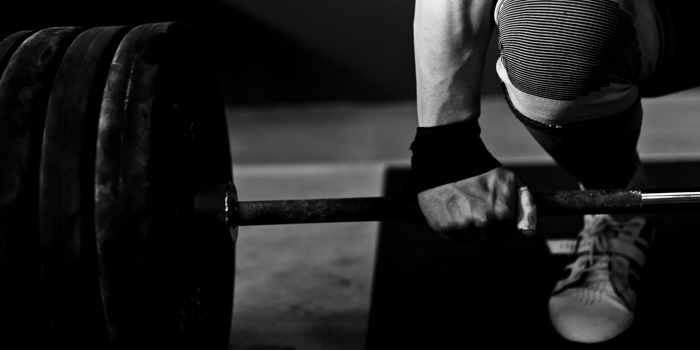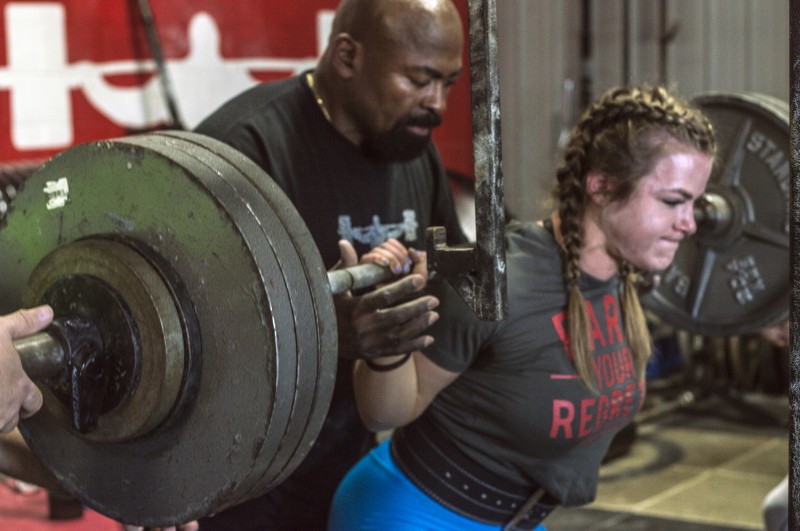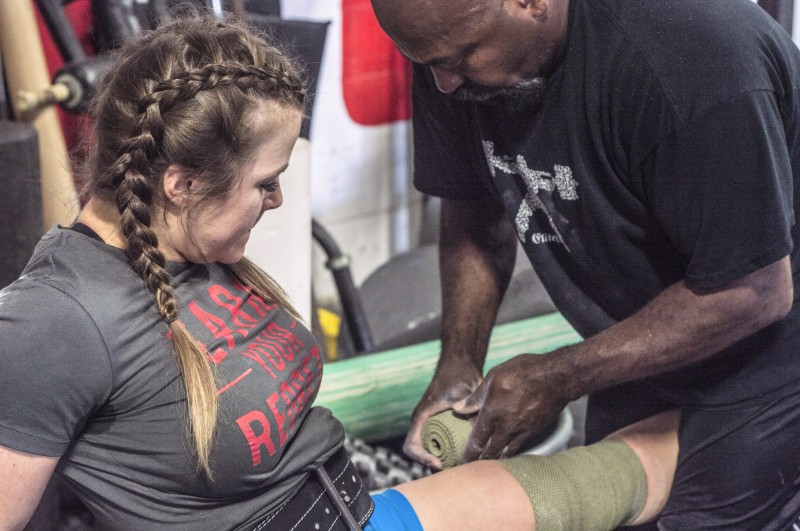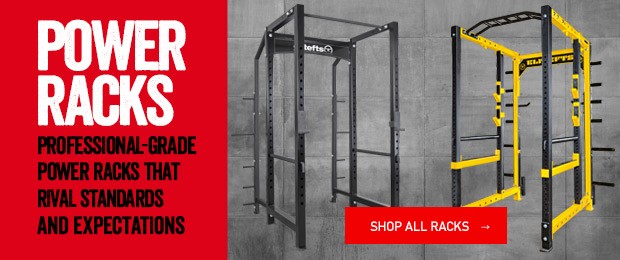
To begin, I’d like to refer to the title of this article. I used the word “makes” on purpose. I thoroughly believe that being a coach is a constant evolution. If at any time we cease learning or trying to better ourselves, we cease being a good coach. I’m constantly drawing on past experiences and new information to determine my best practices and to find the flaws in my own system.
Currently, I’m a weightlifting coach full time. In this country, we have five levels that a coach can be. I’m at level three, the “national coach” distinction, and prior to this, I spent years as a sports performance coach working with athletes and still do. But before all of this, I competed in the sport of powerlifting. Powerlifting was my first love. Powerlifting and weightlifting for the longest time went together like oil and water to me. I didn’t take up weightlifting for a long time because I thought the competitors were too prissy, stuck up, or were so worried about technique and tradition that it wasn’t worth my time. I couldn’t have been more wrong, and my experiences in powerlifting were a huge part of making me the coach I am today.
WATCH: Sumo Deadlift Technique for CrossFit Competitors and Weightlifters
Powerlifting is a great sport. It taught me that if you want to get better, you need to get strong, you need to do things right, and you need to invest time. You had to show up with the team, spot, load, clean up, and push each other. Weightlifting is getting back to this now, with large teams, training halls filled with yelling and screaming encouragement, and sweat and chalk everywhere. The sport is back on the rise, and like powerlifting, we’re seeing bigger meets, better turnout, and a fuller competition calendar. We have at least one a month in my area. Ten years ago there were four a year.
Powerlifting made me strong. Not just physically, but mentally. You have to learn how to grind out weights and make every rep count. If you chased depth on the squat, you never made it, so you had to stop being a sissy and just bury it. You will never make the reps you don’t go after. In the snatch and the clean and jerk, you can’t think about the possibility of failure. You will always fail the lifts you don’t believe you can make. And if you don’t take the time to put in the work—all of it—then you’ll never succeed. A terrible plan done at 100% effort with belief in its efficacy will always beat the greatest program done with a lame excuse for effort. You’re sore — that’s okay, the bar doesn’t mind. Oh, you’re tired? So take a night off, because the person you’re trying to beat isn’t. Check your ego at the door, because no matter which one you walk through, the gravity is the same and it doesn’t care how hard work was.
Powerlifting taught me that speed kills, and in weightlifting, this holds true big time. If it was speed day, you tried to blast the bar up as fast as humanly possible. If someone moved it faster, it made me angry. In weightlifting acceleration is crucial, and I would say that powerlifting taught me that better than anything. From incorporating jumps to using bands and chains with my squats and pulls, nothing has had such a profound effect on me. And while I may not use them often, I still go to them if I feel someone doesn’t get the concept of speed out of the hole in a squat. And if you look slow in your lifts, we immediately try to find a culprit or make a change so you can go faster. Maybe we lighten the load, use a variation — whatever it takes. Accelerating the barbell is the only way to get it overhead. The more acceleration, the easier it is.
Powerlifting is a grind. You have months of work that leads up to nine lifts on a single day. In weightlifting, it’s six lifts in only a couple of hours, after months of work. For some people, this concept of delayed transformation is frustrating. For me, it’s status quo; it’s the way it’s always been. It just makes sense that you have to earn the result. Even more, you’re not guaranteed anything just because you put in the work. You have to execute. If you spent weeks (most of my cycles are 12 weeks in length) you better not wash it away by not showing up on meet day. Execute, with every detail accounted for. There should be a hunger, a fire in your eyes, as you add weight to the bar. You’re disciplined and on weight. You don’t have any excuses because you’ve done everything you’re supposed to. This is your moment.

Powerlifting taught me the importance of variation. You burn out doing the same thing over and over again, but if you bring in variation you can avoid this. You can also use variations to strengthen weak areas or correct technical flaws. I use many variations for both the snatch and the clean and jerk, depending on the time of year and phase of training. You want to try something new and fancy? Go ahead; 12-16 weeks out, plan it ahead. Test it and maybe it will work, but every stone left unturned is a potential opportunity wasted. If you don’t try variations and take a bunch of notes in your log saying what felt good, what felt awful, and what helped you get better than you’re leaving a lot of kilos on the platform. They’re yours to take.
WATCH: Why You Should Use Calibrated Plates
Powerlifting also taught me how important specificity is. If you’re going to compete in a shirt, you better lift in it and get used to it. Same with a suit. If you’re going to snatch and clean and jerk, you better do them in training too. Variations are great, as long as you keep the full lifts in there somewhere. This could be on your speed days if you follow a Westside template. We do our full lifts at least once a week after a full day of rest. You have to practice lifting heavy weights, and you have to practice as often as possible.
I truly believe that there is a place for everything I learned from powerlifting in the sport of weightlifting. As a coach, I’m always trying to instill the big picture in my athletes. Stop worrying about where you are and worry about where you’re going. Think about what you have to accomplish along the way and make a plan to get it done. Leave no stone unturned, and learn as much as you can along the way. All strength sports share something in common: you get out of them what you put in, and if it were easy, everybody would be a world champion.
Weightlifting is back on the rise, and more athletes are competing than ever before. As a coach, it is my job to do my best to prepare my athletes for success on the platform. I truly believe that if not for the lessons I learned in that sport all those years ago, I would not be as effective a coach as I am today. I will continue to revisit those lessons and merge them with new ideas and research to keep my system moving forward. So if you have any good information, let me know. I’m always willing to listen, and in return, I’ll keep sharing my information so we can all grow stronger together.
Header image courtesy, Jesus Trillo Lago © 123RF.com
Steve Tria is a USAW National Coach and the head coach of the Impervious Weightlifting Team where he is responsible for managing the programming and regulating the daily training of all of the athletes on the team. He is also the owner of Team13Fitness, a sports performance company that has seen athletes go from starting high school all the way to the pros. Find him on Facebook and on Instagram at @Coach_Steve_Tria.











1 Comment